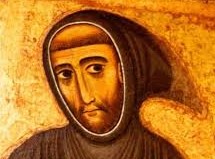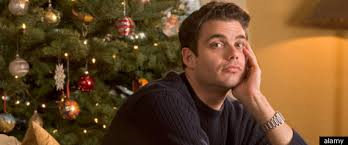
Saints, Sinners and “the Woke”
Those of you of a certain age may remember Daniel Ellsberg, the American political activist, economist and military analyst who was at the center of a national political controversy in 1971 when he released what was to be known as “the Pentagon Papers.”
Wikipedia describes the papers as “a top-secret Pentagon study of U.S. government decision-making in relation to the Vietnam War,” which Ellsberg released to The New York Times, the Washington Post and other newspapers.
At the time, it seemed like an act bordering on treason. He was charged under the Espionage Act of 1917, which carried a maximum sentence of 115 years. Because of governmental misconduct and illegal evidence-gathering (committed by the same people who would later be involved in the Watergate Scandal), all charges against him were eventually dropped, and many believe Ellsberg’s revelations were a great service to the government and to the American public.
What He’s Learned from Studying Saintly Lives
But this isn’t about Daniel Ellsberg, who died this year, but about his son, Robert, who recently wrote an article in the National Catholic Reporter called, “Walking the Path of Holiness: What I’ve Learned from a Lifetime of Studying Saintly Lives.”
Robert Ellsberg, it turns out, became a committed Catholic because of his discovery of the life of St. Francis of Assisi and later his relationship with Dorothy Day, who became a convert herself when she discerned, as Robert Ellsberg describes it, “a deeper recognition of Christ’s real presence in all who were hungry and oppressed.”
Dorothy Day, Ellsberg writes, was co-founder of the Catholic Worker movement, which established “houses of hospitality in the slums, where lay Catholics lived in voluntary poverty among the poor they served, practicing the works of mercy – feeding the hungry, sheltering the homeless – while also witnessing for peace and promotion of social justice.” She died in 1980 at age 83.
Based on his experience with real, live “saints,” Ellsberg became a writer specializing in the motivations and works of saints – those who are canonized by the Catholic Church and those who aren’t.
All Called?
He concluded that all of us who are searching for God are called to be saints, a process that occupies “our entire lives and (is) never fully accomplished … something expressed not only in great and heroic deeds but in the everyday occasions for forgiveness, patience and gratitude.”
And these saints, he writes, don’t simply conform to some predetermined model of holiness, but are people who feel “impelled by the gospel to address a problem or challenge posed by their moment in history – a need, perhaps, recognized only by themselves.”
Many of these saints would now be categorized with the political label, “woke.” That’s unfortunate, because feeding the hungry and sheltering the homeless – whether done in common through taxes or individually – isn’t a political matter but something that compels us who seek God in the Christian tradition.
For Dorothy Day and Ellsberg, it’s not enough simply to extend a hand to the less fortunate, but to work toward a system that results in fewer less fortunate people. As Ellsberg puts it, “not just to bind up the wounds of the slaves but to do away with slavery.”
List of Those Who Are “Blessed”
“Jesus never outlined the criteria for canonization,” the process the Catholic church uses to name people saints, “but he enumerated a list of those who were “blessed:” the poor in spirit, the merciful, the pure of heart, the peacemakers,” Ellsberg writes.
He quotes Pope Francis in saying that saints are among “our mothers, grandmothers, or other loved ones. Their lives may not always have been perfect, yet amid their faults and failings they kept moving forward and proved pleasing to the Lord.”
It occurs to me that we shouldn’t so much see a contrast between “saints” and “sinners” as to understand that most of us are simultaneously both. And while we live, as Ellsberg writes, we are never a finished product.


